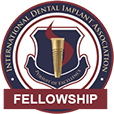Five Easy Ways to Prevent Gum Disease
November 28th, 2017

Gum disease can be painful and lead to missing teeth if you don’t treat it properly. However, there are plenty of things you can do to lower your risk of getting gingivitis and periodontitis. Here are five easy ways to prevent gum disease.
1. Brush your teeth.
Basic oral hygiene is the first line of defense against gum disease. The reason is due to the way gum disease progresses. There are bacteria in your mouth that produce a sticky substance called plaque. Plaque can build up and form tartar. Together, plaque and tartar lead to the painful symptoms of gum disease. You can remove plaque from your teeth with regular careful brushing, but you can’t remove the tartar with your regular toothbrush. So, it’s best to brush at least twice a day, or after each meal, to continuously remove plaque from your teeth. Also floss your teeth and use mouthwash to prevent the bacteria in your mouth from having anything to eat.
2. Stop smoking.
Smoking is a major risk factor for gum disease. Your risk of getting gum disease if you’re not a smoker is one-seventh the risk of someone who does use tobacco. It’s also worth quitting smoking even once you do get gum disease, since treatment is less effective when you’re using tobacco.
3. Eat right.
Gingivitis is a bacterial infection, and a strong immune system helps fight it. Many nutrients are essential for a well-functioning immune system. For example, eat plenty of fruits and vegetables, such as citrus fruits, broccoli, and strawberries, for their vitamin C, which is an antioxidant. Vitamin E, which is another antioxidant, is in nuts, plant-based oils, and wheat germ.
4. Visit our Lebanon, NJ office regularly.
You might not be able to detect that you have gum disease, even if you watch for symptoms. Dr. DeCasperis can detect signs of gum disease before you do.
5. Catch it early.
Since only we can remove tartar once it forms, keep watching for signs of gum disease. They include sensitivity while brushing your teeth or when eating hot, cold, or sugary foods, painful or bleeding gums, and loose teeth. You might also notice that you have bad breath for no reason. Make an appointment with at our Lebanon, NJ office if you think you may have gum disease.









